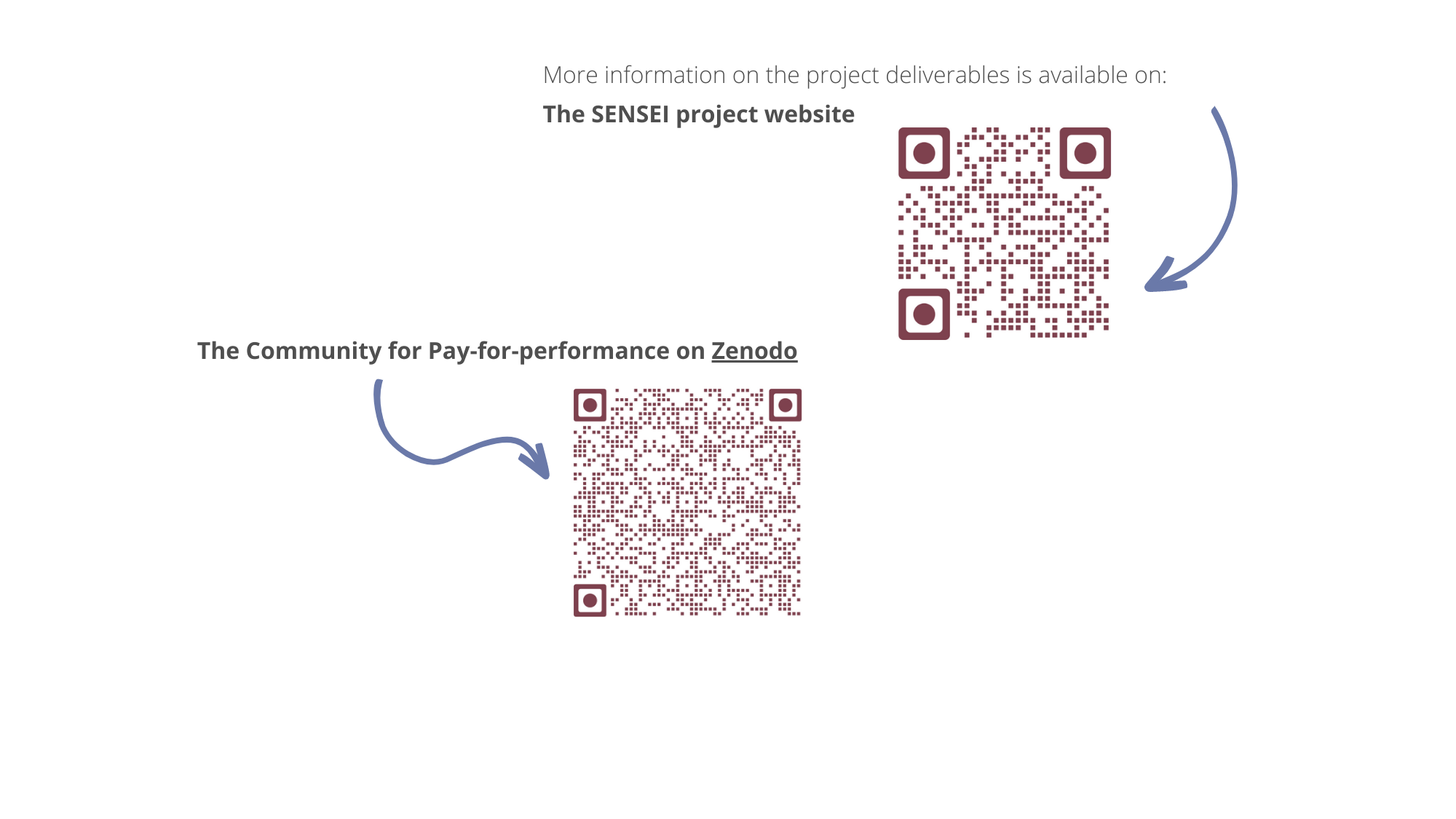The SENSEI final report guides you, in a visual handbook format, through SENSEI, the project, its core concepts, the framework and policy insights.
The SENSEI project (full title: Smart Energy Services Integrating the Multiple Benefits from Improving the Energy Efficiency of the European Building Stock) was a HORIZON2020 project funded by the European Union, which ran from 2019 to 2023. It comprised of 14 partners from 8 EU countries: Belgium, Denmark, Germany, Greece, Italy, Norway, the Netherlands, and Spain.
The purpose of SENSEI has been to prepare the ground for programmes that compensate energy efficiency as a grid resource, while turning its value into an investable asset for private financing. The SENSEI project has been investigating how to estimate the value of energy efficiency, quantify its benefits for the power grid, and help set the framework that could help attract additional investments into energy efficiency retrofits, based on the rules of project finance.
The key concept behind SENSEI is Pay-for-Performance (P4P), where payments are made for energy savings estimated ex-post. P4P programmes exist in many configurations, but in essence it is a multi-actor arrangement in which financial compensation is rewarded based on metered energy savings. SENSEI has been based on the success of the Energy Performance Contracting (EPC) model, and it has aimed to further expand its scope by integrating payment mechanisms based on metered energy savings, and proposing business models and institutional arrangements that promote a performance-based market for energy efficiency.
P4P programmes have been applied in the US for many years and based on the lessons learned, SENSEI was the first project to investigate P4P in the EU. SENSEI analysed 11 P4P programmes across the US, developing knowledge and insights into how P4P can benefit EU market players such as ESCO’s, building owners and energy providers. This is being explored in the context of aiming to improve energy efficiency renovation rates so that the corresponding energy demand reductions contribute to the EU climate goals. This could eventually lead society to avoid the construction of new power plants, reduce grid infrastructure costs and mitigate the energy crisis. Adopting P4P programmes holds promise for increased investments and returns for energy efficiency infrastructure projects.



